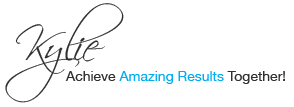6 Mistakes When Negotiating a New Salary
September 27, 2012 Leave a comment
 Securing a brand new job or simply finding out that you’ve been accepted for that promotion is an inspiring feeling – and as part of your success, you will need to negotiate a new salary.
Securing a brand new job or simply finding out that you’ve been accepted for that promotion is an inspiring feeling – and as part of your success, you will need to negotiate a new salary.
Salary negotiation can be tough and I’ve been witness to some big mistakes made by candidates when it comes to discussing their new salary. These mistakes, although small, have cost them thousands of dollars and some have even resulted in them losing the opportunity altogether.
If you are negotiating your new salary, be aware of these top 6 mistakes that I’ve observed repeatedly.
Mistake 1: Including Salary Details In Your Professional Resume
If you have included any salary information in your professional resume, you should delete it, whether it’s your current salary or the salary you desire. Revealing your salary expectations in your executive resume can hinder your chances of success, especially in the early stages.
If you are successful in winning the role, it also means that you are “stuck” with the salary you’ve already disclosed, or the employer will only make you an offer that’s slightly more than your current salary. Remember, your professional resume is there to showcase your experience, achievements and skills for the role – not as a starting place for salary negotiations.
Mistake 2: Giving Away Salary Details in the Interview
During the interview process, some employers may ask you what salary you are looking for.
But just like your professional resume, it’s crucial that you don’t disclose any of your salary details or expectations until you have been offered the role, and negotiations have commenced. Setting the salary bar too low early on can greatly limit the room you have to negotiate more later.
If you are questioned in an interview about your salary, remain “elusive” or politely inform the employer or recruiter that you’d prefer to leave any salary discussions until the end of the interview process.
Mistake 3: Accepting the First Offer
When an employer makes you their first salary offer, you should keep in mind that it is an initial offer. That is, you should negotiate a higher salary or a better package based on this figure.
Even if you are thrilled about securing the position, accepting the first offer means that you’ve (a) reduced your salary instantly and (b) set back your salary progression for the future.
Mistake 4: Being Too Demanding
Salary negotiation takes a lot of tact and skill, and coming off as too pushy or demanding in your negotiations can lead to your requests simply being refused or, in the worst case scenario, your offer being retracted.
Instead, think clearly and carefully about the true worth of the skills and talents you are bringing to the table, and consider the realistic benchmark for salaries in your given industry. If in doubt, a career coaching professional may be able to help you.
Mistake 5: Failing to Leverage Other Areas
Often, I’ve seen employers tell candidates that there is absolutely no room for negotiation when it comes to their base salary. Usually, the candidate simply responds with, “oh ok” and then accepts the offer.
This is a big mistake. Even though some companies may not be able to budge on salary, it doesn’t mean that you can’t negotiate with them in other areas. For instance, you could ask for more bonuses, increased benefits, a company car or a salary review in the near future?
Mistake 6: Not Hiring A Negotiator
I’ve also seen many executives negotiate their own salary and as a result, they end up greatly underselling themselves. An experienced negotiator can potentially earn you thousands more when it comes to your salary, and they will be able to advise you on what salary range you should be aiming for in terms of your skillset and industry.
Are you ready for a pay rise?
Salary negotiations are tricky. If you’re not confident, why not get in touch with Resumes Australia? Our salary negotiation services can advise you on what you’re really worth and help you achieve a salary that’s on a par with your success.
Regards,




You must be logged in to post a comment.